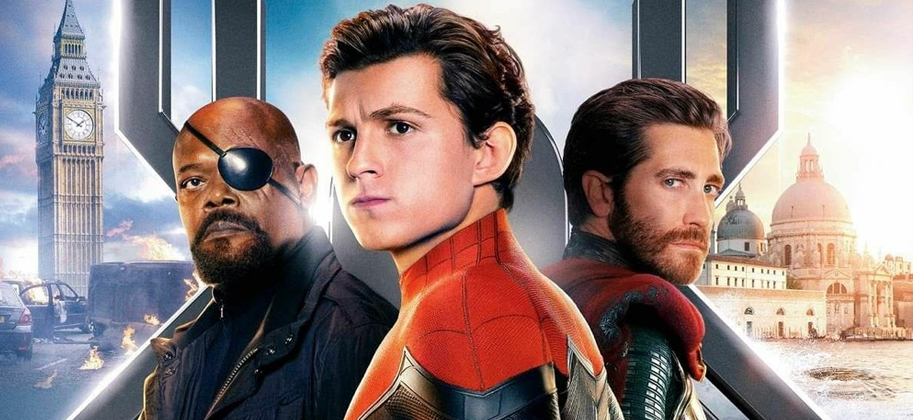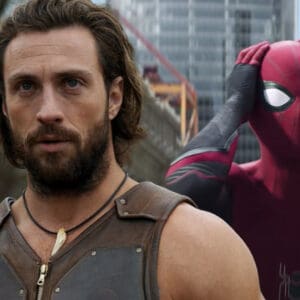Last Updated on July 30, 2021

Update: According to Collider and io9, Sony representatives have reached out to say that the dispute "comes down to producer credit only and our understanding is negotiations are ongoing." They also added that Kevin Feige has contributed to other Spider-centric movies, such as VENOM, which he did not receive a producer credit on. While this potentially softens the originally reported story somewhat, it's clear that we haven't heard the last of the battle between these two studios over ol' web-head.
-original article follows-
With Spider-Man owned by Sony Pictures, it was initially thought to be nearly impossible for the wall-crawler to make an appearance in the Marvel Cinematic Universe, but after Sony began struggling with how to approach the character following THE AMAZING SPIDER-MAN 2, a deal was reached with Disney which found Spidey making his MCU debut in CAPTAIN AMERICA: CIVIL WAR. It was an awesome comic-book moment, and Spider-Man, now played by Tom Holland, went on to feature in SPIDER-MAN: HOMECOMING, AVENGERS: INFINITY WAR, AVENGERS: ENDGAME, and the recent SPIDER-MAN: FAR FROM HOME. However, Spidey's time in the MCU may have come to an end thanks to a battle between Sony and Disney.
According to Deadline, the two studios have been having a dispute over the past few months over reaching new terms regarding the use of Spider-Man. Long story short, it all comes down to money. Disney approached Sony asking that all future Spider-Man films be a 50/50 co-financing arrangement between the studios, but Sony turned down the offer straight away, not wanting to share more of its biggest franchise than it has to. This disagreement has essentially led to Marvel Studios president Kevin Feige losing creative control over Spider-Man, and the future involvement of Spider-Man in the MCU is looking very dim indeed. Sony was keen on keeping the current agreement going, where Disney receives something in the range of 5% of the first dollar gross, but Disney refused. Deadline's sources say that there are two more Spider-Man films in the works with director Jon Watts and Tom Holland expected to return, but unless something changes at the last-minute, Kevin Feige won't be the lead creative producer on those films.
Before the dispute erupted, there had apparently been talks between Kevin Feige and Sony Pictures' Tom Rothman about allowing Marvel to dip further into the catalogue of Spider-Man characters which Sony controls, but that seems even more unlikely given the quickly deteriorating relationship between the two studios. Sharing Spider-Man seems like it should be a win-win; Marvel gets control of its most popular character and Sony gets to rake in the cash, but it seems that Disney wants a little more of the pie and Sony isn't ready to give it up. Now the question becomes, can Sony continue to make this work without Kevin Feige? Deadline's Mike Fleming Jr. equated the decision to Sony saying, "Thank you, but we think we can win the championship without Michael Jordan." Deadline's sources say that Sony believes that they will be just fine without Feige now that the creative legwork has been done and the character is properly established once again. To be fair, from Sony's point of view, Disney already receives 100% of the merchandising revenue for Spider-Man, so Disney wanting a larger cut of the cinematic revenue in addition to that seems like too high a price.
Part of me believes, hopes, that Sony and Disney can reach some sort of agreement before it's too late; after all, getting to see Spider-Man play around in the larger Marvel Universe alongside Captain America, Iron Man, and others is part of the fun, but at the moment, things aren't looking great.




















Follow the JOBLO MOVIE NETWORK
Follow us on YOUTUBE
Follow ARROW IN THE HEAD
Follow AITH on YOUTUBE